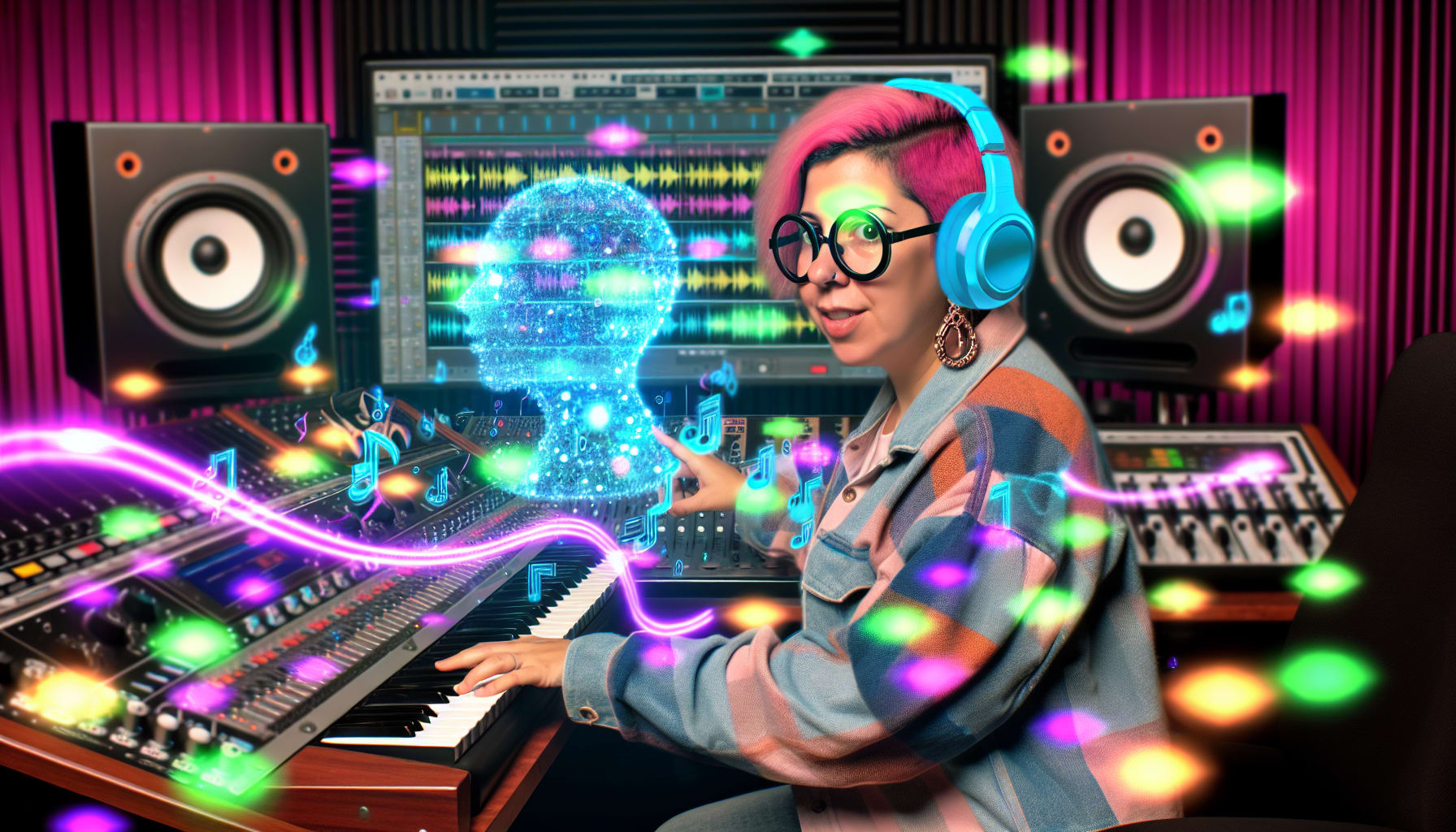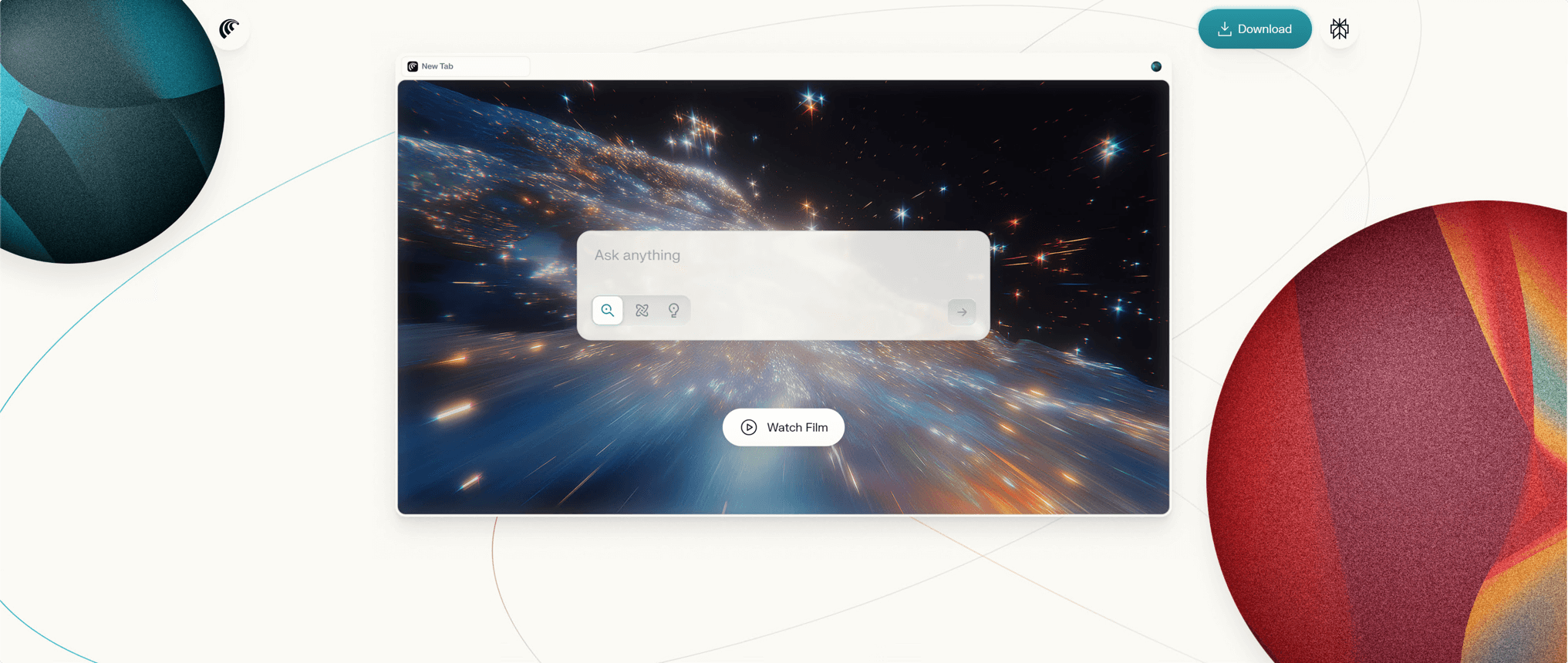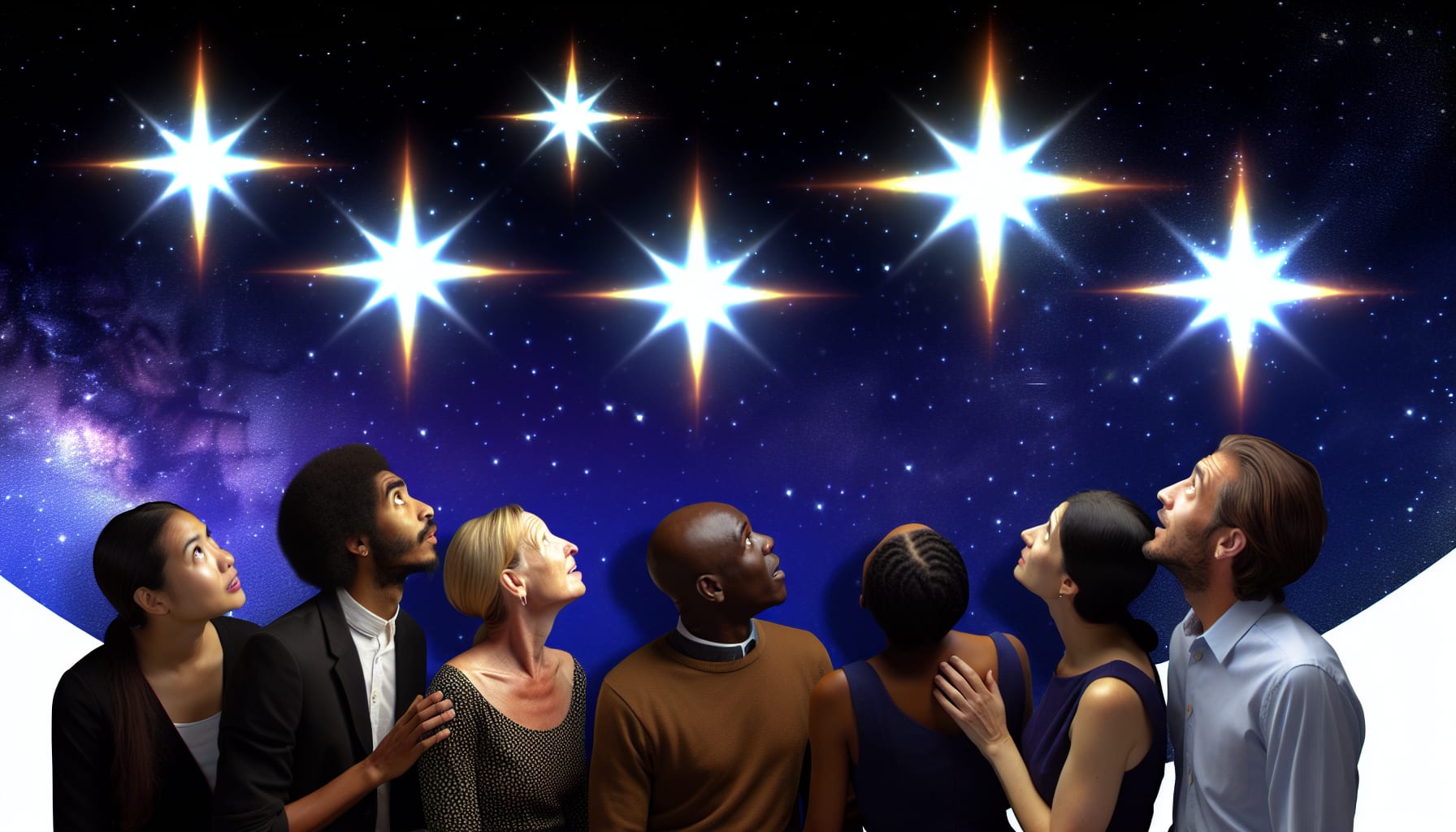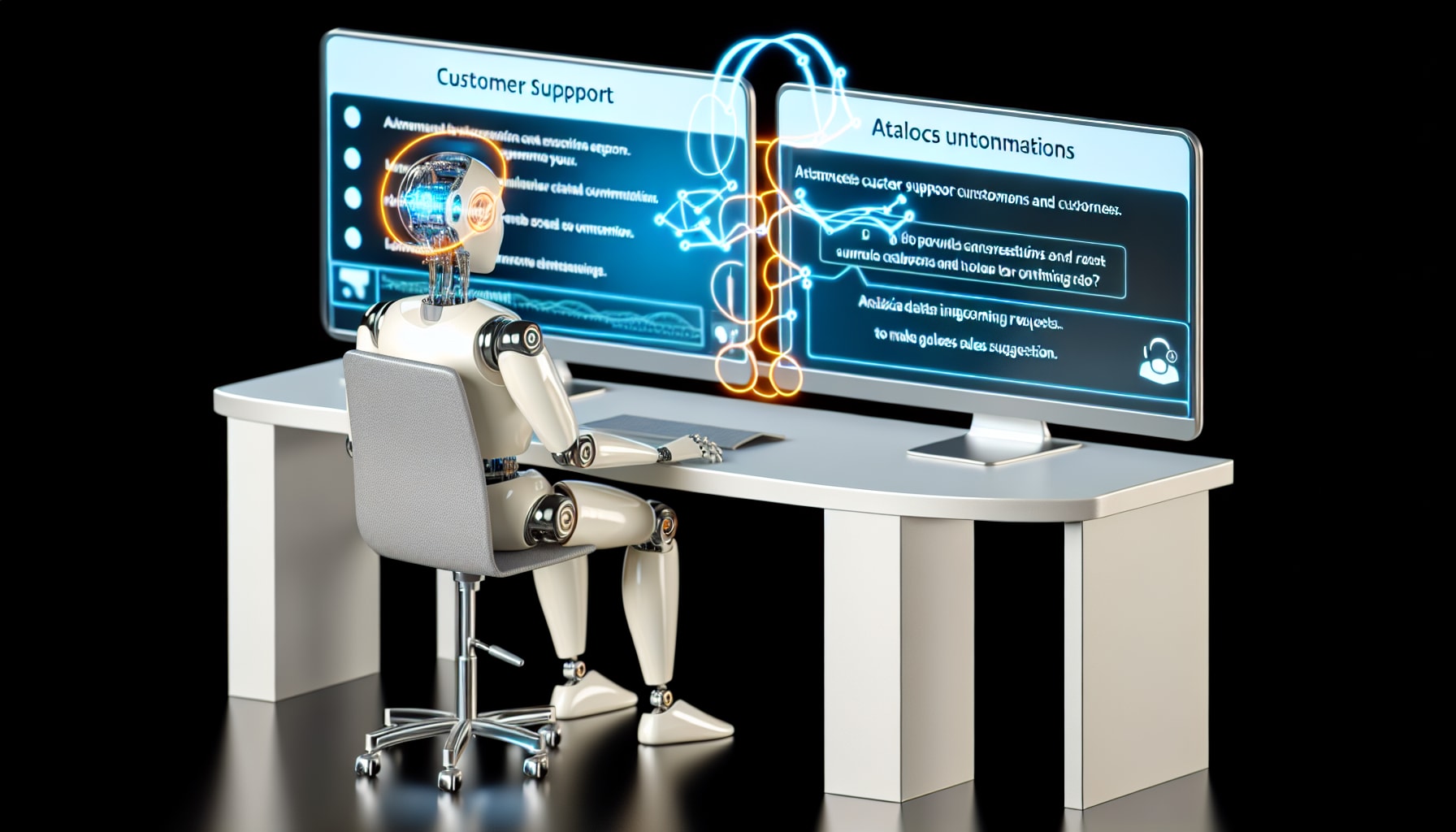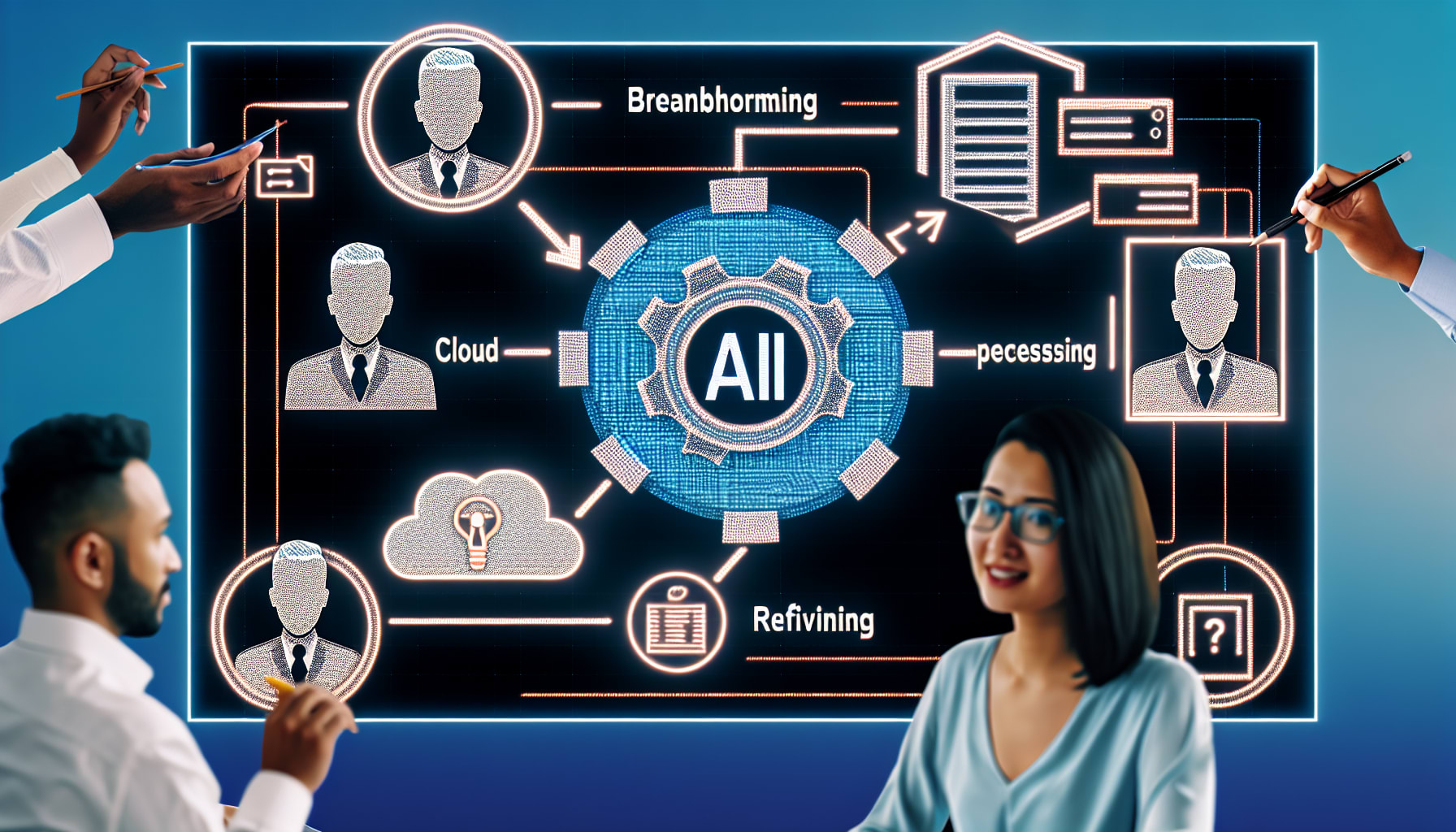For decades, creating music was a pursuit reserved for those with years of practice, a deep understanding of music theory, and access to expensive studio equipment. This created a high barrier to entry, leaving many creative ideas unheard. Today, that is changing rapidly. AI music generators have emerged as powerful yet accessible tools that can transform a simple text description into a fully orchestrated song, complete with vocals and instruments. These platforms are not just novelties; they are fundamentally altering the music creation process, empowering everyone from aspiring artists to professional producers. This article will explore how these AI tools are transforming the industry, highlight some of the leading platforms, detail their practical applications, and discuss the future trends and ethical considerations that come with this new era of music.
Let’s dive into how this technology is reshaping the sound of creativity.
The Rise of AI Music Generators: Transforming Music Creation
The idea of computers composing music has been around since the 1950s, but recent breakthroughs in machine learning have made it a practical reality for millions. Modern AI music generators are built on complex algorithms that analyze vast datasets of existing music, learning the patterns, structures, and nuances that define different genres and styles.
AI music generators are democratizing music creation by automating complex composition processes, making it accessible to non-musicians and fostering new forms of human-AI collaboration.
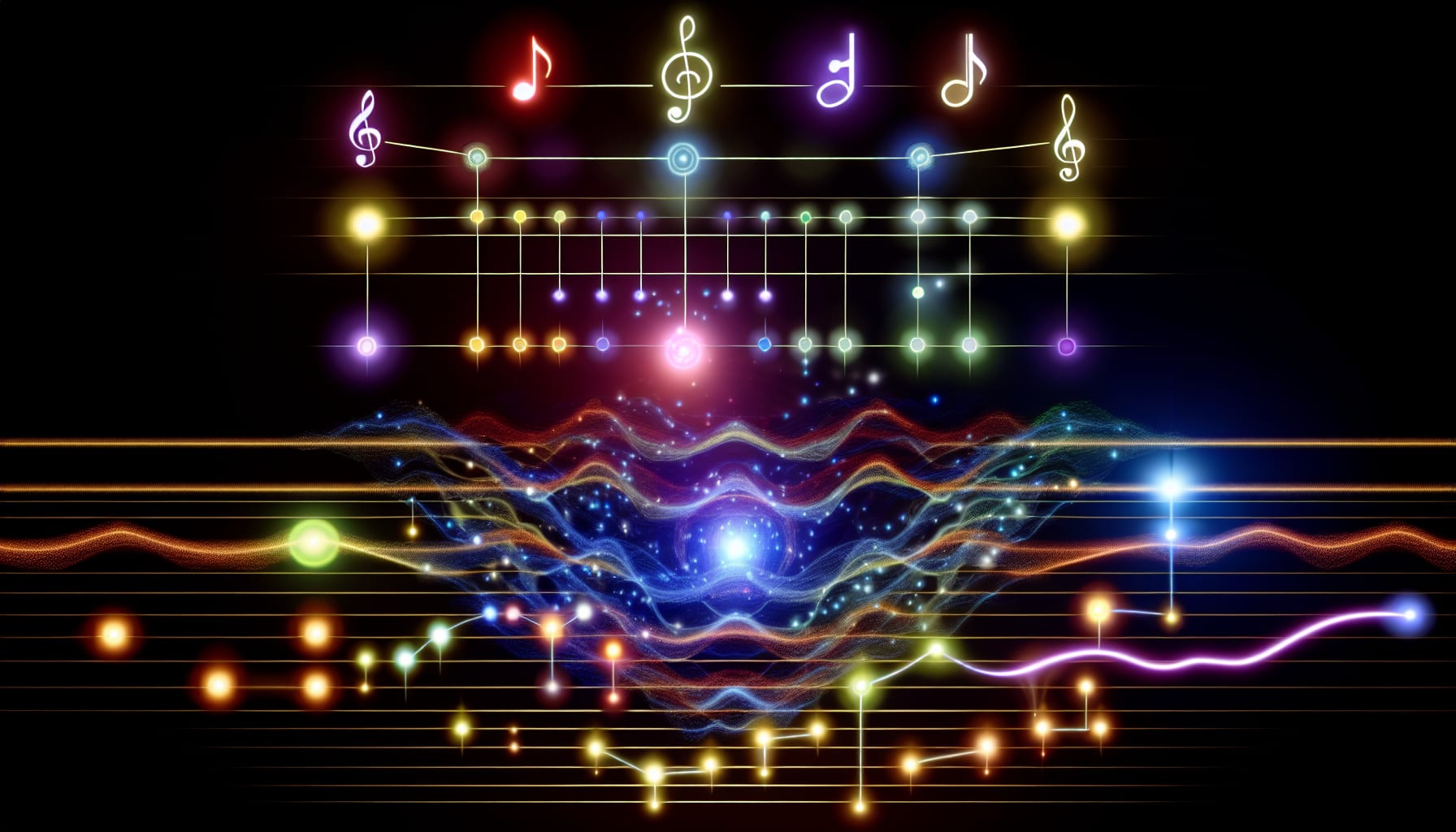
AI-Driven Composition Technology
At their core, these tools use sophisticated machine learning models, particularly neural networks, which are designed to mimic the human brain’s ability to recognize patterns. By training on countless hours of music, from classical concertos to modern hip-hop, the AI learns the rules of melody, harmony, and rhythm. When a user provides a prompt—like “a sad acoustic folk song about rain”—the AI uses this learned knowledge to generate a new, original piece of music that fits the description. It’s not copying existing songs but rather combining musical elements in novel ways, much like a human musician draws on their influences.
Accessibility for Aspiring Musicians
Perhaps the most significant impact of AI music generators is their ability to lower the barrier to entry. They have effectively leveled the playing field, empowering anyone with an idea to create a professional-sounding track without needing formal training.
Gone are the days when creating Music required years of practice, specialized skills, and a professional Studio equipped with expensive gear. Artificial Intelligence has leveled the playing field, empowering anyone to craft their own musical masterpieces.
This accessibility means that people who previously lacked the technical skills or resources can now experiment with music creation. It opens up a new avenue for personal expression and creativity for a much broader audience.
Collaboration Between Humans and AI
Instead of replacing human artists, AI is becoming a powerful creative partner. Musicians are using these tools to overcome writer’s block, quickly prototype ideas, and handle tedious production tasks. For example, an artist can generate a dozen different drum patterns in minutes to find the perfect one for their track, freeing them up to focus on the more expressive elements like lyrics and vocal performance. Artists like Grimes have openly embraced AI, even allowing others to use an AI model of her voice in their own creations, showcasing a future where human and machine creativity are deeply intertwined.
Exploring Popular AI Music Generators and Their Features
The market for AI music tools is growing quickly, with several platforms offering unique features tailored to different types of users. From simple text-to-music generators to more advanced production suites, these tools provide a wide range of capabilities.
Platforms like Suno AI, Music Muse, and Generator AI Music offer distinct features, from text-to-song generation with custom lyrics to instant, high-quality track creation.
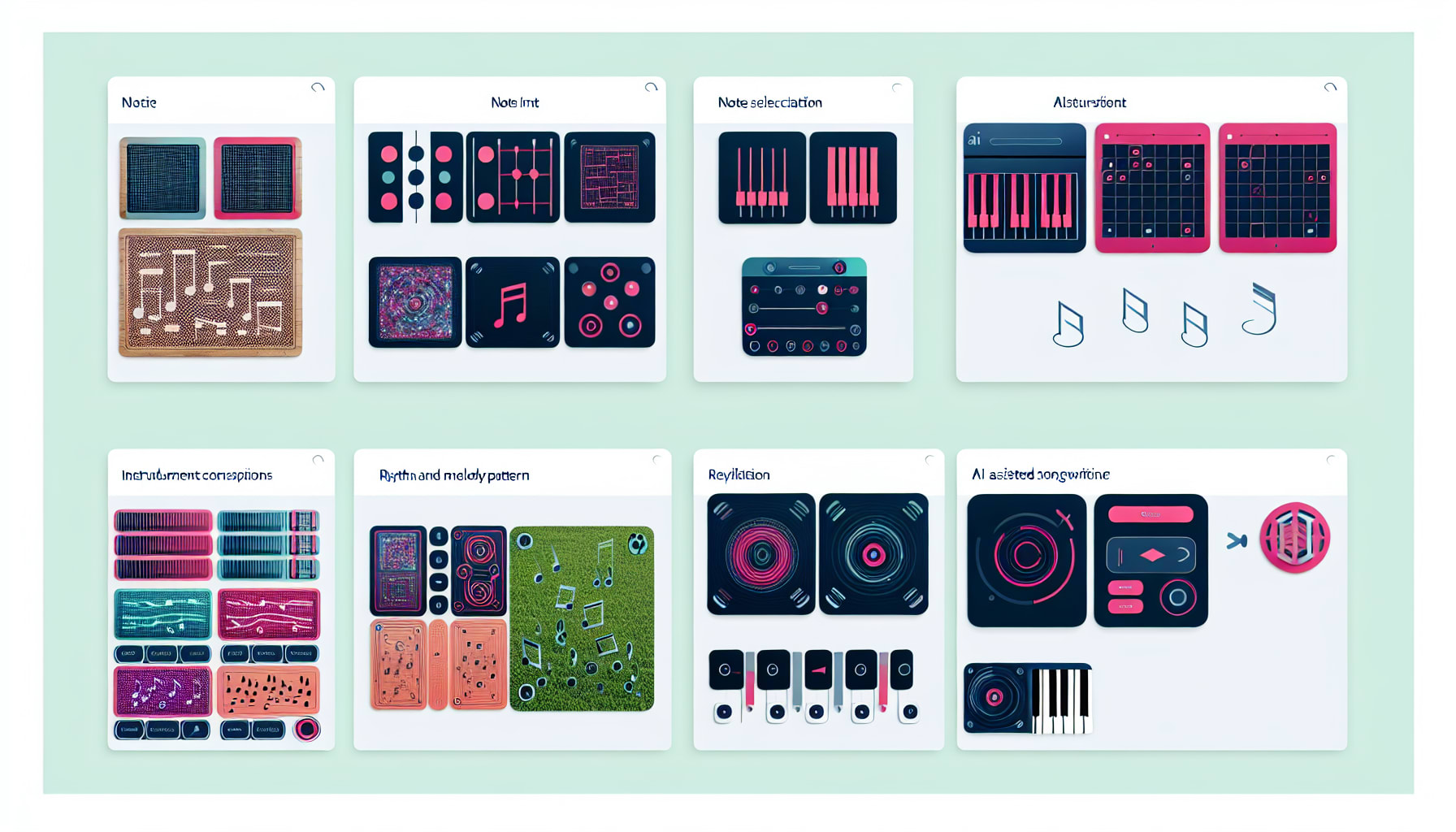
Suno AI: Text-to-Music and Custom Lyrics
Suno AI has quickly become a leader in the space, known for its ability to create complete songs—including surprisingly coherent vocals and lyrics—from a single text prompt. Users can operate in a simple mode by just describing a song idea (e.g., “upbeat pop-punk with palm-muted guitars”) or switch to a custom mode to input their own lyrics and have greater control over the song’s structure. With a free plan for beginners and paid tiers that grant commercial usage rights, Suno makes it easy for anyone to experiment with turning ideas into full-fledged songs.
Music Muse: Instant Professional-Quality Tracks
Music Muse positions itself as an AI music studio capable of turning a creative vision into a “professionally produced track in seconds.” Its standout features include a “lyrics to symphony” function that analyzes the emotion and rhythm of user-provided lyrics to craft a fitting musical accompaniment. The platform is designed for intuitive, natural language input, attracting a diverse user base that includes independent songwriters, electronic music producers, and even film score composers who praise its speed and quality.
Generator AI Music: Versatile Text and Lyrics to Music Tools
For creators who need more than just song generation, platforms like Generator AI Music offer a suite of specialized tools. Beyond its core text-to-music and lyrics-to-music features, it provides utilities like a vocal remover to create instrumental tracks and a music splitter to separate a song into individual stems (vocals, drums, bass, etc.). This versatility makes it a powerful asset for producers, DJs, and remix artists who want to deconstruct and reimagine existing audio.
Practical Applications and Monetization of AI-Generated Music
The rise of AI music generators has created tangible value across various industries, providing new solutions for content creators and opening up new revenue streams for enterprising musicians.
AI-generated music provides a scalable solution for royalty-free content, opens new revenue streams on streaming platforms, and offers custom audio for businesses and games.
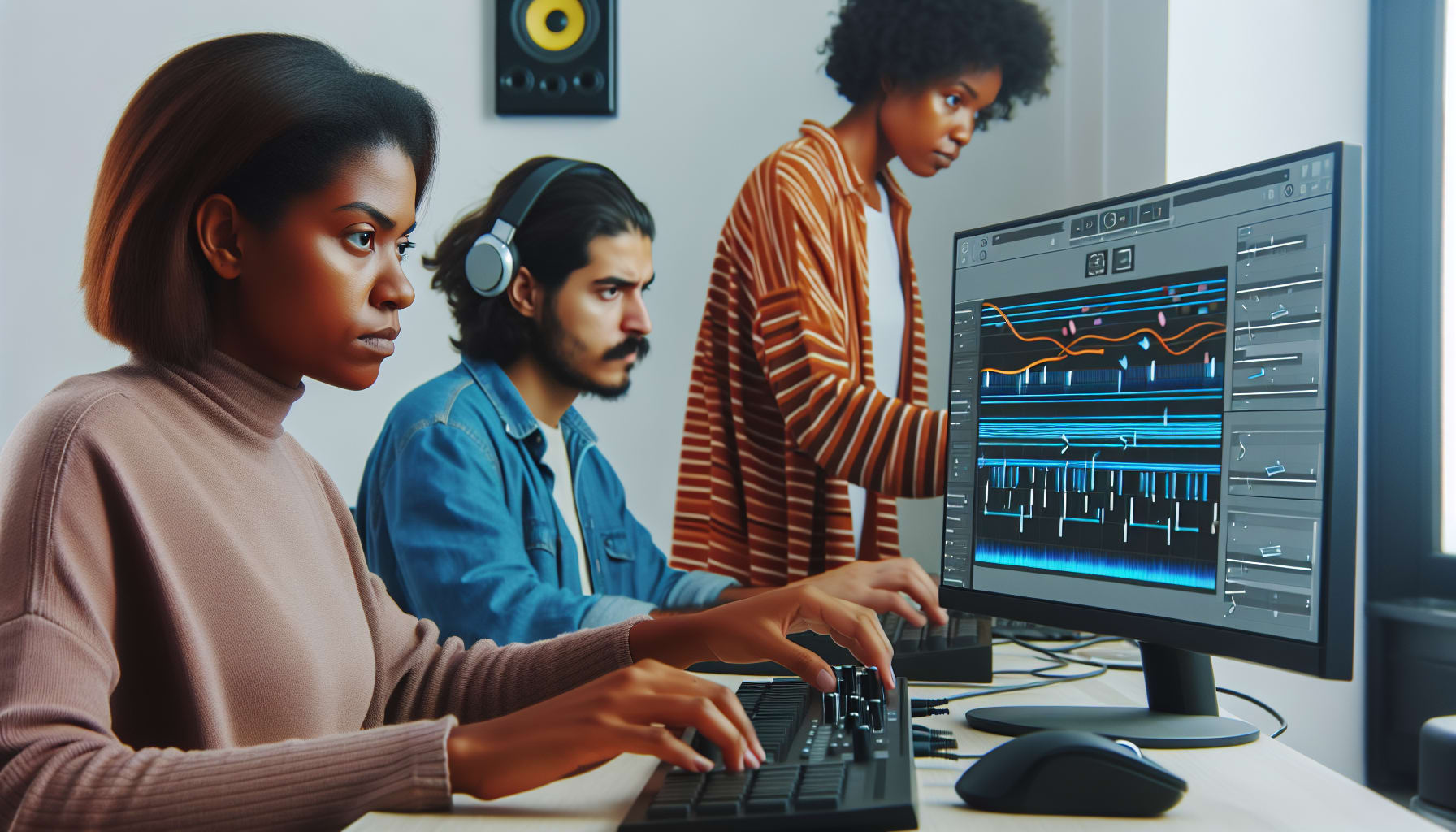
Royalty-Free Background Music for Content Creators
One of the most immediate applications is in the creation of royalty-free music for online content. YouTubers, podcasters, and social media influencers constantly need background music for their videos, but licensing commercial tracks can be expensive and legally complex. AI music generators offer a fast, affordable alternative, allowing creators to generate custom tracks that perfectly match the mood of their content without worrying about copyright strikes.
Monetizing AI Music on Streaming and Social Platforms
Creators are not just using AI music for background tracks; they are producing original songs and monetizing them on major platforms. By using an AI tool to generate an instrumental beat and then adding their own vocals or modifications, artists can create unique works. They can then upload these songs to Spotify, Apple Music, and other services through distributors like DistroKid.
Artists like Trippie Redd, French Montana, and Fivio Foreign have also used SOUNDRAW to create beats for their songs.
Custom AI Music for Businesses, Games, and Events
The applications extend beyond individual creators. Businesses are using AI to generate custom jingles for advertisements and on-hold music. Indie game developers, who often operate on tight budgets, can create unique soundtracks that enhance the player experience without hiring a composer. Event organizers can produce theme music tailored to a specific conference or celebration. In all these cases, AI provides a cost-effective and highly customizable solution for professional audio needs.
Future Trends, Ethical Considerations, and Human Creativity Balance
As AI technology continues to advance, its integration into the music industry will only deepen. However, this progress brings with it important questions about ethics, ownership, and the role of human artistry.
The future of AI in music involves deeper workflow integration and new creative possibilities, but it also demands robust ethical frameworks for artist compensation and copyright.
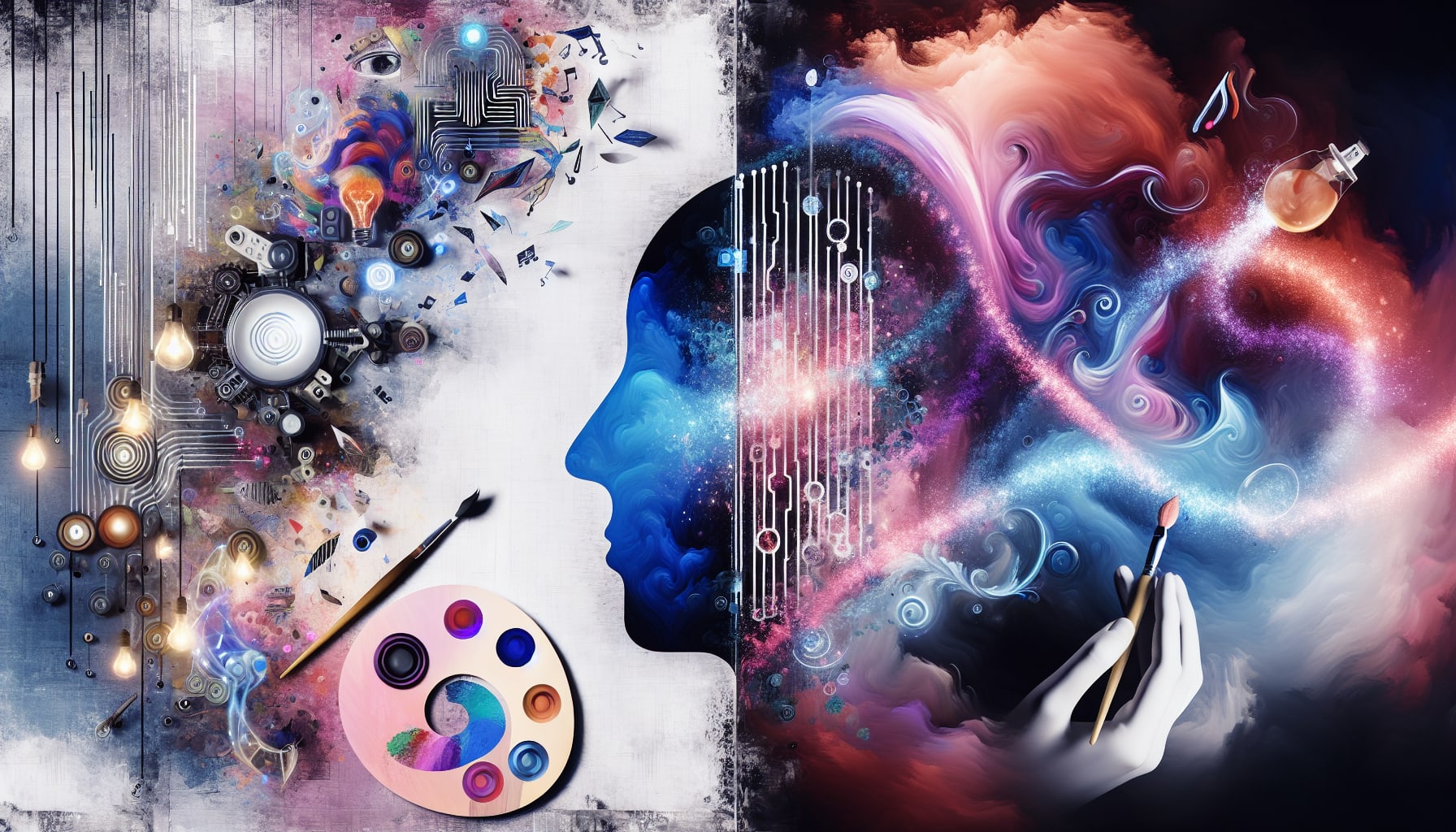
AI-Enhanced Music Production Workflows
The next wave of innovation will see AI tools becoming more deeply integrated into professional music production workflows. For instance, Apple’s Logic Pro now includes AI-powered “Session Players” that can generate realistic drum, bass, and keyboard parts that adapt to a user’s project. Other tools like iZotope’s Neutron use AI to assist with complex tasks like mixing and mastering, offering intelligent suggestions to help producers achieve a polished, professional sound. This trend points to a future where AI handles the technical heavy lifting, allowing artists to focus more on their creative vision.
Ethical Challenges and Artist Compensation
The rise of AI music is not without its challenges. One of the most pressing issues is copyright. The U.S. Copyright Office and legal systems worldwide are still grappling with who owns an AI-generated song. Furthermore, since these models are trained on music created by human artists, questions of fair compensation are paramount. Some companies are tackling this head-on.
At Kits AI, we’ve taken a firm stance on this. Every voice model we offer is fully licensed and artist-approved, ensuring creators are credited and compensated fairly. We believe AI should fuel creativity, not exploit it.
This ethical approach, where artists are paid for the use of their data or likeness, will be crucial for the sustainable and responsible growth of AI in the music industry.
Blending AI Innovation with Human Artistic Vision
Ultimately, the most promising future is one where AI and human creativity are not in opposition but in harmony. AI is a powerful tool, but it lacks genuine emotion, life experience, and artistic taste. As David Guetta noted after experimenting with an AI-replicated Eminem vocal, “If you have terrible taste, your music is still gonna be terrible, even with AI.” The true potential lies in combining AI’s computational power with a human’s unique vision. A recent example is Paul McCartney using AI to isolate John Lennon’s voice from an old demo to complete the final Beatles song, “Now and Then”—a poignant blend of technology and human legacy.
Conclusion
AI music generators are undeniably reshaping the music landscape. They are making music creation more democratic than ever before, providing powerful tools for both amateurs and professionals, and opening up new avenues for commercial and artistic expression. While significant ethical and legal questions remain, the trajectory is clear: AI is becoming an indispensable collaborator in the creative process. By embracing these tools thoughtfully and focusing on a balanced partnership between technological innovation and human artistry, we can unlock a future filled with new sounds, new artists, and new possibilities. The journey is just beginning, and it’s an exciting time to be listening.
Tools like this won’t fix everything, but they can make things easier.
Sometimes, getting unstuck is just about removing one small barrier.
If this sounds useful to you, Feel Free to Explore the Tool Here →
